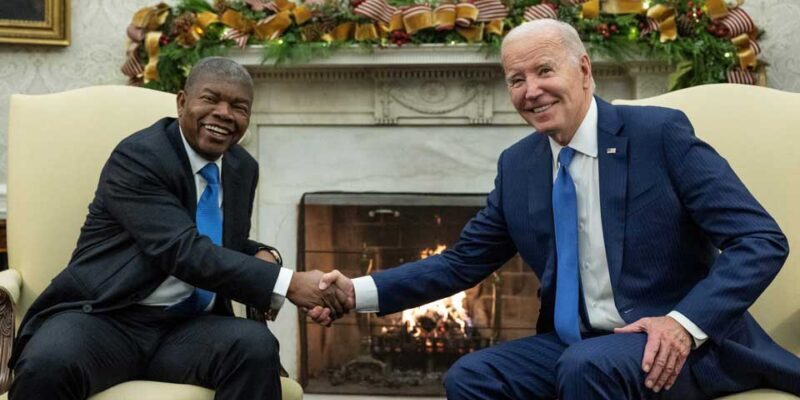Outgoing U.S. President Joe Biden is making a historic visit to Angola, fulfilling a pledge to strengthen U.S. ties with sub-Saharan Africa as competition with China intensifies.
Biden, the first U.S. president to visit Angola since its independence in 1975, will spend three days in Luanda, from Monday to Wednesday, discussing economic, political, and cultural partnerships.
The visit honors a promise Biden made in 2022 to engage more closely with Africa. Originally scheduled for October, the trip was delayed due to Hurricane Milton’s landfall in Florida.
Despite his “lame-duck” status, Biden’s visit aims to underscore U.S. influence and investment in Africa.
“This is not too little, too late,” said a senior U.S. official. “President Biden has worked to put the U.S. back on the field after years of limited engagement.”
Focus on the Lobito Corridor
Central to Biden’s agenda is the Lobito Corridor, an 800-mile (1,300-kilometer) rail project connecting Angola’s Lobito port with key mining regions in the Democratic Republic of Congo (DRC) and Zambia.
The U.S. and European Union-funded project is the largest U.S. rail investment in Africa, linking cobalt and copper mines critical for tech manufacturing.
Biden will also meet with Angolan President João Lourenço to discuss public health, agriculture, military cooperation, and cultural preservation.
Human rights organizations have called on Biden to address Angola’s rights record, citing reports of police violence against protesters and the prolonged detention of government critics. Amnesty International has urged the U.S. president to demand reforms during his visit.
“President Biden has consistently demonstrated his commitment to democracy,” the senior U.S. official noted, suggesting that human rights discussions will feature prominently during bilateral talks.
U.S.-China Rivalry
Biden’s visit also seeks to counter China’s influence in Africa. Angola owes China $17 billion, roughly 40% of its total debt, raising concerns about the long-term impact of Chinese loans.
“African governments are increasingly seeking alternatives to Chinese investment, especially when it results in generational debt,” said the U.S. official.
President Lourenço has signaled interest in diversifying Angola’s partnerships, including voting in favor of a United Nations resolution condemning Russia’s invasion of Ukraine in 2022.
For Lourenço, Biden’s visit symbolizes a diplomatic milestone as Angola looks to expand its global partnerships.
“It fulfills a long-held dream of hosting the first American president,” said Cesaltina Abreu, a sociologist at the Catholic University of Angola.
However, questions remain about the continuity of U.S.-Africa engagement under the incoming Trump administration. Analysts warn that a lack of focus on Africa could erode the progress made during Biden’s term.
“Angola, and countries like it, have many partners to choose from in a world increasingly competing for access to Africa’s vital resources,” said Alex Vines of Chatham House.
Biden’s visit underscores the importance of Angola as a strategic partner in Africa, reflecting broader efforts to strengthen U.S. ties across the continent amid rising global competition.
![]()




